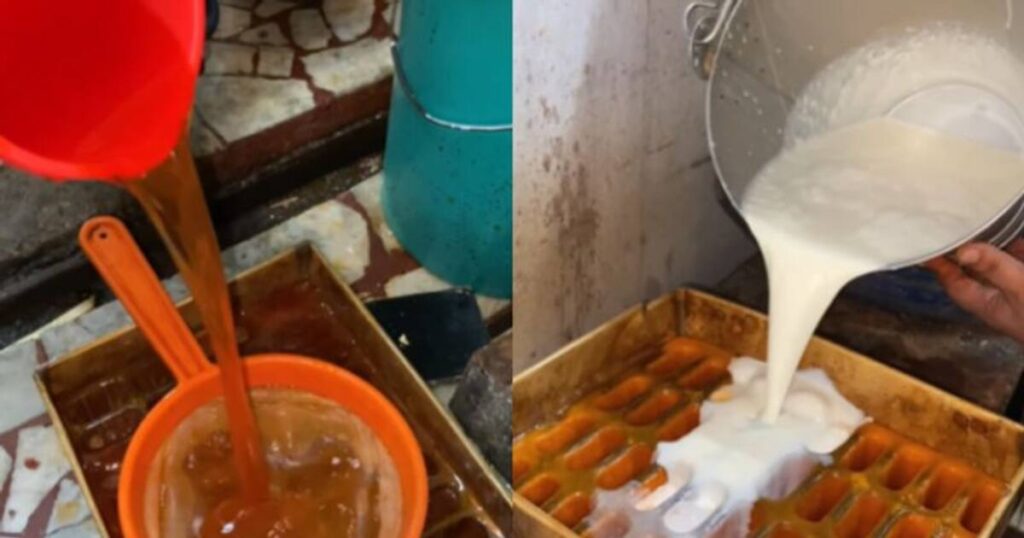Kanpur’s ice cream factory under scrutiny over hygiene amid viral video

Kanpur's ice cream factory under scrutiny over hygiene amid viral video
A viral video circulating on social media has raised concerns about hygiene practices in an ice cream factory in Kanpur. While enjoying different types of ice creams is a quintessential part of summer, the process behind their production varies across different regions.
While some methods are lauded for their cleanliness and safety standards, others have come under scrutiny.
In the now-viral video, a vendor is depicted preparing orange popsicles. The process involves pouring the orange syrup into popsicle moulds, followed by the addition of milk before placing the moulds in a freezer.
However, what disturbed netizens were the apparent unhygienic conditions observed during the manufacturing process.
The surrounding area of the factory displayed signs of poor hygiene, with dirty water visible in the tub where the popsicle moulds are kept. This has sparked concerns among social media users regarding the overall hygiene standards maintained in the facility.
The video, shared on Instagram, prompted discussions among users about the hygiene practices observed in the ice cream factory. The accompanying caption read, “Orange Ice Cream Making. Kanpur. Rs 10 Only.”
The video was posted a week ago and since then it has collected over a lakh views and likes.
Netizens criticised the video and expressed concerns about the hygiene practices shown in the video:
“Immunity booster stuff for Indian kids,” commented a user.
“Parents were right,” added a second. “Never buying a local brand again,” mentioned a third.
“Ice cream tray is so dirty,” wrote a fourth.
One user shared how parents used to ask us not to have ice cream from local shops and wrote “Parents sahi bolte the sewer paani se banta hai (Parents were right. They use sewer water.)
As the video continues to garner attention, it underscores the importance of stringent hygiene standards in food production facilities, especially in establishments dealing with consumables like ice cream. It serves as a reminder for consumers to prioritize hygiene and cleanliness when choosing where to purchase food items.












